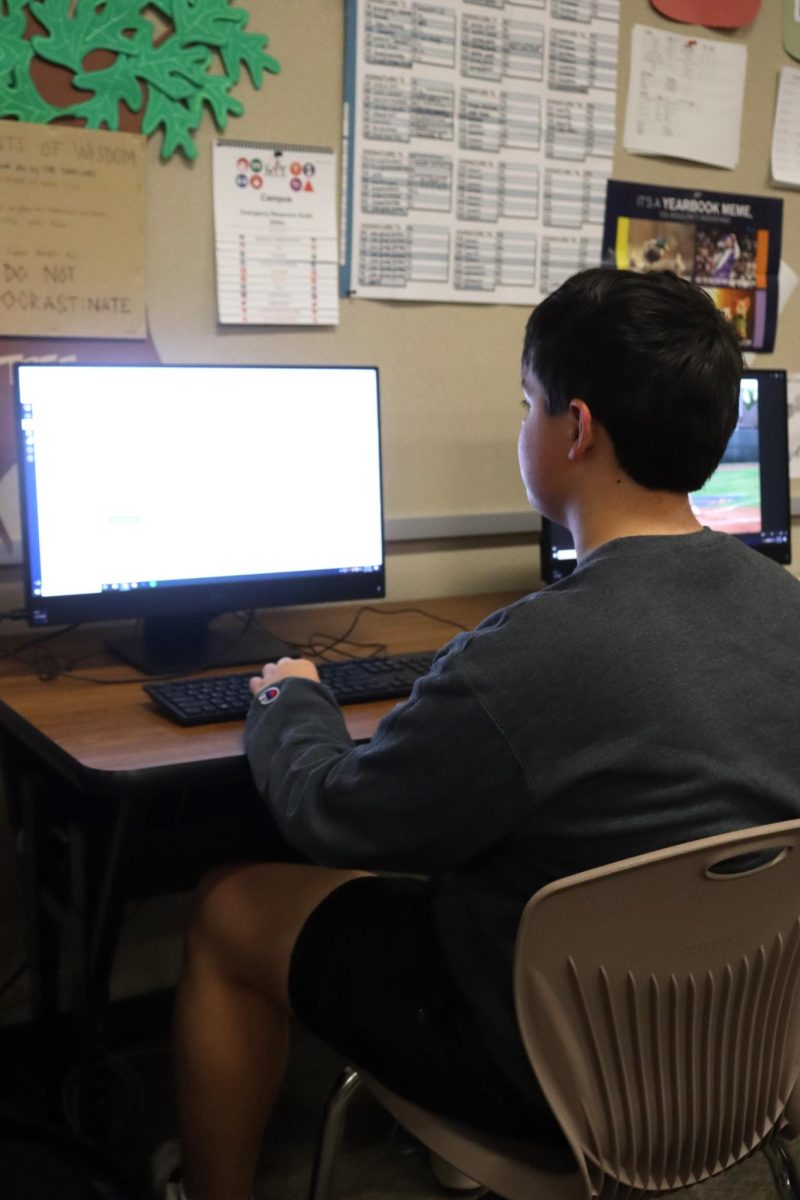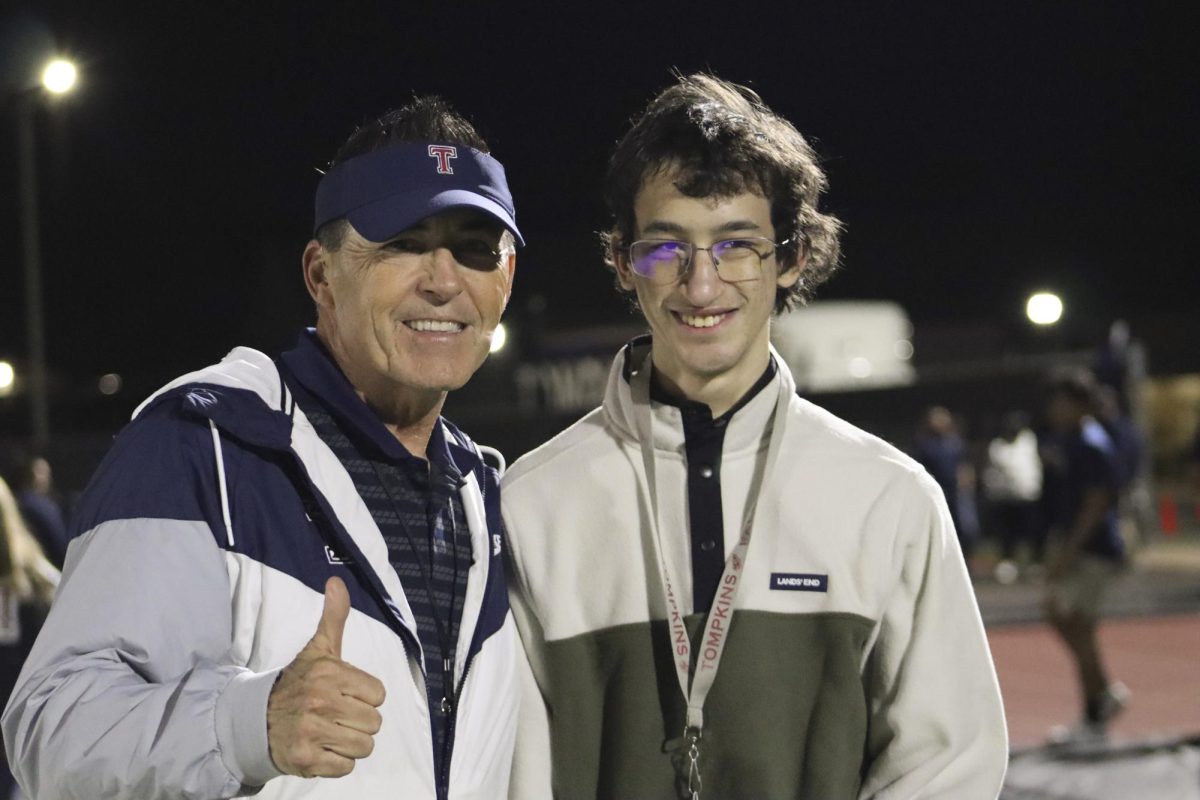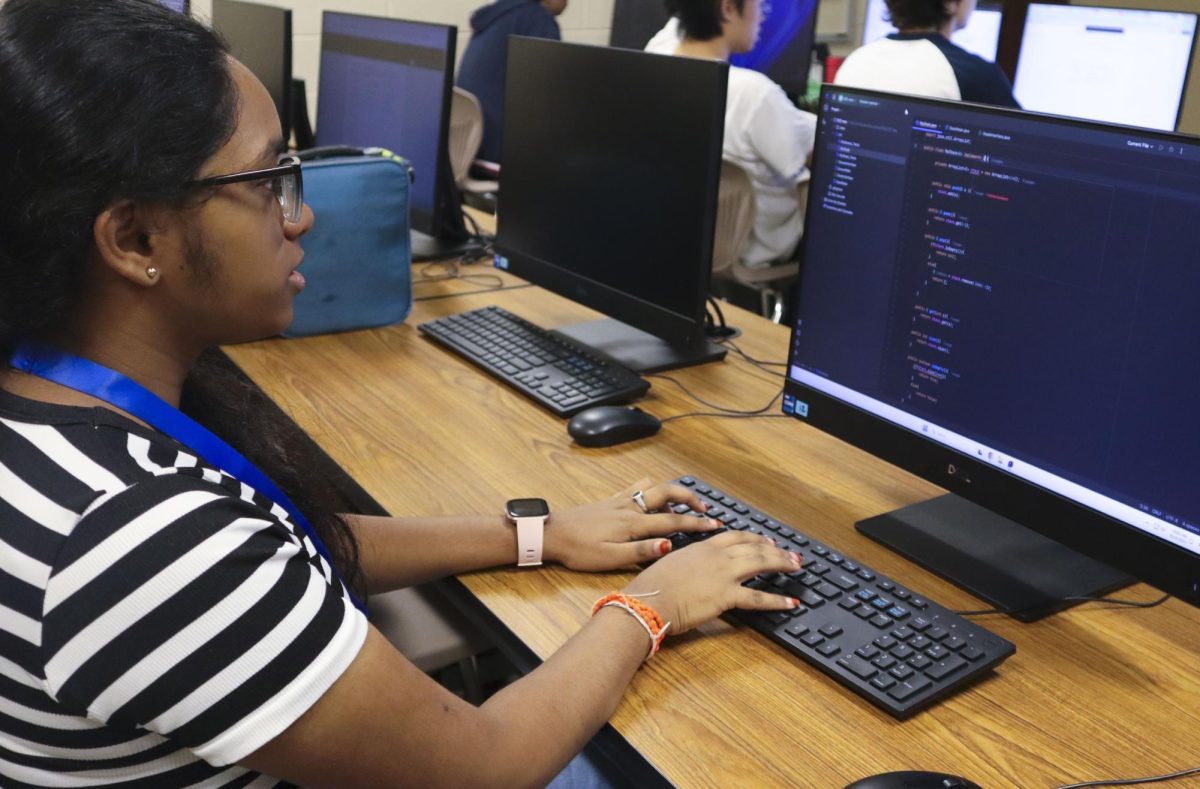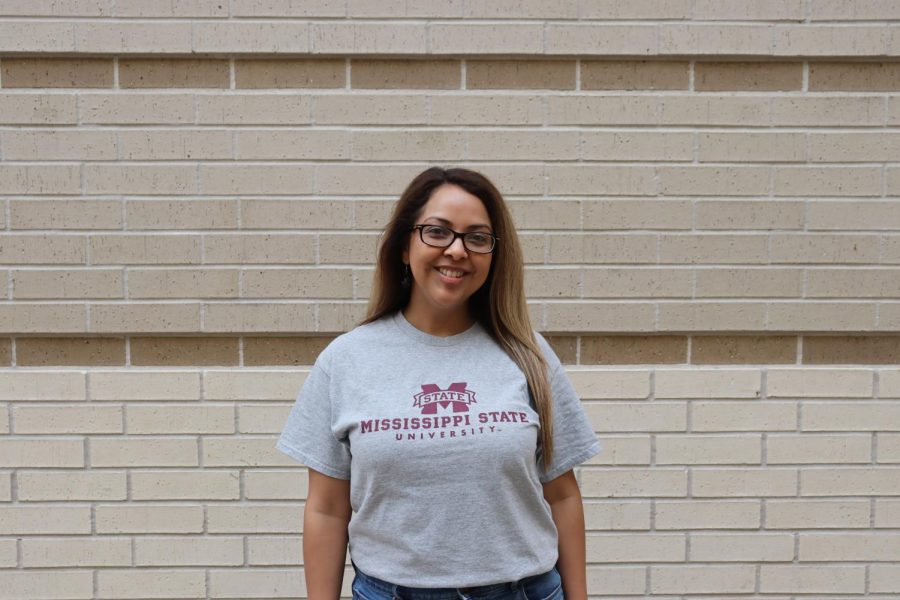AI Poses Troubles In Educational Settings
By Baneen Rizvi
Education systems across the nation have begun to express concern regarding the blowup of artificial intelligence (AI) platforms such as ChatGPT, Open AI and Google Cloud and its usage in secondary and college settings. AI has long posed a controversy on the matter of technology integration into schools’ curriculums and has led to mixed reactions from educators and teachers regarding its benefits and consequences in the classroom. However, the pros are far outweighed by the cons as concerning results from students’ capabilities in different courses has plummeted as reliance on these chatbots to complete coursework has increased. Many educators have vocalized concerns about AI integration in the classroom and mentioned below are a few of the major highlights discussed in recent years.
Three Major Concerns Regarding AI
Cheating and Plagiarism
Many educators have observed that the increasing number of advancements on platforms such as ChatGPT have produced a variety of tools for students to access, which essentially, has allowed students to easily cheat and plagiarize, having a resource available at their fingertips. According to UWorld, ChatGPT has developed a feature that allows users to submit a prompt and in response, will send a computer-generated essay paper within seconds. This feature allows students to submit AI-generated work and pass it off as their own and ultimately contribute to an undermining of integrity in the classroom.
Lack of Creativity and Critical Thinking Skills
Relying on AI also allows students to not think for themselves. With students resorting to chatbots to answer free response questions or produce ideas for projects or essays, students fail to maintain creative thinking, a skill crucial for use in daily life. Without these skills, students may fail to develop critical thinking skills that are used in future careers and higher education.
Replacement of Human Educators In Schools
AI has allowed for immediate feedback to students and become an increasingly reliable source for students to fall back on whether at home or in remote learning settings. As students resort to AI to answer their questions or assist them in completing assignments, teachers are unable to fulfill their role as a mentor to their students and this could result in serious academic problems as students may not be absorbing content effectively to progress in their classes.
Recognizing and Combating AI at Tompkins
As AI continues to impose a greater presence in schools, many teachers have expressed concern regarding the use of AI in their classes. As mentioned previously, AI has produced serious problems and hindrances in students’ education, especially in higher education. To prevent a stronghold of AI on students’ academic capabilities, many teachers are recognizing the issues it brings and spreading awareness about the matter within schools. AP Literature teacher Ashley Park is determined to prevent unfair AI use within classrooms; she believes AI contributes to a long term negative growth within students that could potentially set them back in their future careers.
“I think that the easy-to-access ability of AI in recent years has really impacted education as a whole,” said Park. “Whereas some see it as a tool to allow people to work smarter, not harder, I think that most educators would agree that this is simply not the case because it lacks the critical thinking skills that we so desperately need on a day-to-day basis, future career skills and a demonstration of actual student knowledge. The ability to take an easy way out is no different than using another student’s work and treating it as one’s own; it lacks authenticity and character.”
Park’s concerns are a representation of the emotions many educators are feeling regarding the subject. Teachers aim to better their students’ skills and capabilities in their academics, but AI serves as an obstacle for teachers to truly understand what path to take for their students to succeed in their courses. AP courses, for example, contain content students must learn in order to pass the AP exam, an exam that can provide students with useful college credit, if they score high. If teachers cannot connect with their students and their progress, then the fail rate on the exam is expected to be higher and ultimately serves as a waste of time, money and the opportunity for learning.
“It becomes a real hindrance as we have to spend more of our time than ever determining the authenticity of student work and marginalizes the important work that we as teachers do in building writing and problem solving skills,” said Park.
As the issue of AI in schools continues, teachers and educators struggle to manage the issue within their classrooms. Many teachers have chosen to combat the problem with easily adoptable solutions in their courses. For English teacher Kelly Moore, emphasizing a personal progress plan in her classes has proved to be successful thus far in keeping her students on track and away from the influence of artificial intelligence in their work for her class. She works with her students one on one to improve their essays through reflective work, allowing them to improve their abilities to respond to prompts without AI assistance. Similarly, Park has established this method, but she seems to voice an opinion for many educators, emphasizing a ban on AI within schools. She believes in order for students to truly develop skills and learn in schools, it is necessary to limit any sources that are prevalent to that.
“I think that there may be a niche market in which AI could be useful, but I do not think that the formative education years of students should be the ones in which they use these programs because it will hinder the development of critical thinking, speaking, and writing skills, skills that our society simply cannot function without,” said Park. “We will not have the discernment needed to make critical decisions in life if we do not possess the basic skills.”
Navigate Education with AI
By Sydney Jackson
In recent years, technological advancements in education have become increasingly common, and have in fact been encouraged due to the positive educational growth it has on students, cultivating new ways to learn and engage their minds. However, Artificial Intelligence, AI, tools like ChatGPT might be changing this thought.
AI has expanded and gained intelligence, spreading in nearly every corner of life, including the education for high school students. According to the data accumulated on the July 2023 ACT survey, 46 percent of 10th through 12th grade students use AI tools in the classroom to provide aid or to entirely do their homework and school assignments, evidently showing how easily accessible and common AI is to the average student.
AP Computer Science teacher Bryan Johnson realizes this and understands that both students and teachers have to adapt to this new presence in education. However, he believes it will take more than just talking to students telling students that AI use in school is not good.
“It’s [AI] problematic,” said Johnson. “However, for most high school students, they won’t understand its effects until college.”
Johnson, a current masters student in computer science himself, understands the temptations for students wanting to use AI tools to complete their homework and other school assignments. For them, as it is easier to have a robot create the perfect and correct response for assignments. However, Johnson believes that doing this is detrimental to students’ growth of intelligence. Using AI to do the thinking and work that goes into school work causes students to not be able to think for themselves, thus causing no growth in the brain.
“If students say ‘Hey do the homework for me’ [ on ChatGPT ], there’s no deductive reasoning happening in your brain,” said Johnson. “You yourself will cause yourself to fall behind.”
This is why Johnson expresses the importance of using AI strictly as an aid tool rather than something to cheat with. He believes that AI usage is okay in certain situations, like helping students better understand a subject. Inserting a sentence like ‘Give me Biology questions’ or ‘Explain stoichiometry to me like a 10 year old’ into an AI search engine is a good usage of AI.
“You can use it [AI] as an educational tutor, you did the lesson, you just asked ChatGPT what was wrong,” said Johnson.
However, for writing essays or reports, it is harder to involve this practice, as they require the students’ own thought process and words to be used. For students, it is important to adopt a mindset that encourages confidence in personal work. The price of staying up later to write a good essay that receives a good grade, has a much better reward, rather than taking the easy way out. By doing this, there is a positive involvement of the brain. For students who feel tempted to use AI, Johnson recommends for them to write handwritten first, then to type them out into the computer.
“Go analog,” said Johnson. “If you make everybody write everything down on a sheet of paper, can’t do it for them.”















